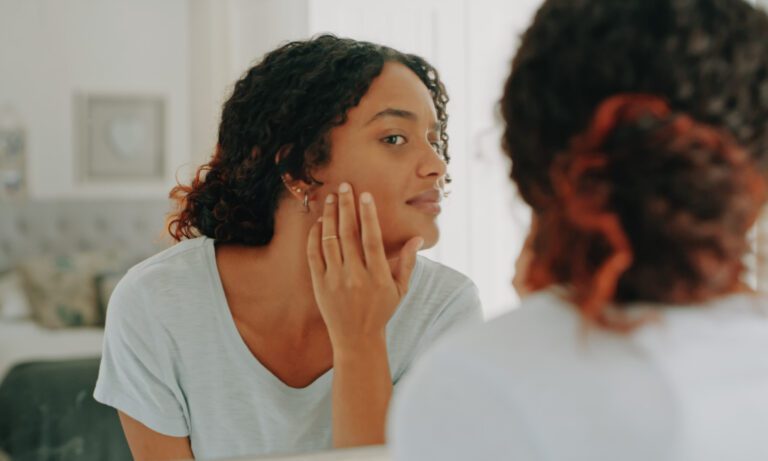If you suffer from breakouts and acne regularly, it’s important to tell your doctor before having your skin treated with lasers of any kind. The reason? Some lasers can worsen existing acne and even cause breakouts days after treatment. “Any laser that disrupts the skin barrier can cause breakouts,” says Miami dermatologist Dr. Deborah Longwill. If breakouts only occur after laser, they may be caused by the treatment, the ointments, or both.
Featured Experts
- Dr. Deborah Longwill is a board-certified dermatologist based in Miami
- Dr. Matthew Elias is a board-certified dermatologist based in Fort Lauderdale, FL
- Kelly Bomer, MD is a board-certified facial plastic surgeon based in Scottsdale, AZ
- Anita Saluja, MD is a board-certified dermatologist based in Melbourne, Florida
What is laser-induced acne?
“The question is always is it the laser or the occlusives used before and after the treatment?” notes Fort Lauderdale, FL dermatologist Dr. Matthew Elias. Melbourne, Florida, dermatologist Anita Saluja, MD explains that post-treatment oils are often petroleum jelly-based which can clog pores.
When do you get laser-induced acne?
Dr. Elias says that while any laser can lead to acne or worsen existing breakouts, it’s more commonly seen with laser hair removal or resurfacing procedures. “Breakouts often result from laser hair removal because the hair is thick and coarse. Then, a portion of the follicle contains dead hair fragments, which the body tries to shed,” says Scottsdale, AZ, facial plastic surgeon Kelly Bomer, MD. “When this happens, there is an inflammatory response, which can cause red bumps with pus, which look like a red pimple with a white head.” But it’s not just hair removal that can cause it—any heat-based laser can lead to a breakout because many of them stimulate sebum production.
If you’re dealing with more severe laser-induced acne, see your board-certified dermatologist for treatment that may mirror standard acne treatment, Dr. Elias says. However, there are a few steps you can take to try to prevent this from happening altogether.
How can you prevent laser-induced acne?
“I always recommend gently cleansing the skin before and after treatment,” says Dr. Longwill. “Be careful what you apply to the skin before and after treatment because the skin barrier is disrupted during treatment.” He suggests not using perfumed creams and other food-inducing ingredients.
How do you treat laser-induced acne?
If you’re having more intensive resurfacing procedures like Fraxel or CoolPeel, Dr. Elias suggests asking your doctor what creams and ointments can be used on your skin without being extremely occlusive. It’s important to keep your skin moisturized after a laser, but if you know your skin is prone to breakouts, you may want to skip heavy, occlusive creams and ointments. “Instead, you can use your favorite moisturizer with hydrocortisone (0.05-1.0 percent) and bacitracin for a day or two if the laser causes peeling,” says Dr. Bomer.
Instead of waiting for a flare-up, play it safe and ask your doctor to prescribe an antibiotic for a few days before and after the laser. This can help reduce any existing inflammation and clear out anything lurking in your pores. If that still doesn’t help, you may want to consider a different type of treatment on your skin, such as a chemical peel, which shouldn’t cause breakouts.


